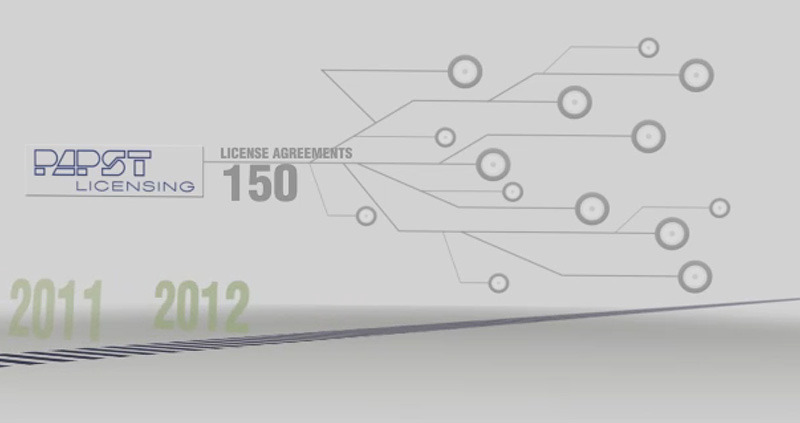Apple is once again in the legal crosshairs of a non-practicing entity, this time as part of a lawsuit leveled by patent monetization firm Papst, which claims iPhone, iPad and iPod infringe on four owned properties relating to data transfer technology.
Lodged with the patent holder-friendly U.S. District Court for the Eastern District of Texas on Monday, Papst's complaint involves four patents, specifically U.S. Patent Nos. 6,473,399, 8,504,746, 8,966,144 and 9,189,437, each dealing with digital media transfer protocols.
In particular, Papst claims it notified Apple of devices in infringement of the '399 patent as early as 2007, saying a dialogue concerning the matter continued until mid-2010. The IP, reassigned from electronics outfit Labortechnik Tasler, covers efficient data communications applicable to Picture Transfer Protocol (PTP) and Media Transfer Protocol (MTP) technology. The patent's claims detail a communications system capable of compensating for transmission delays and varying transmission rates by checking whether data units sent from one node were received by a second node.
Papst further claims Apple was monitoring Papst's patent prosecution and therefore had knowledge of the '746, '144 and '437 patents. Still, the company moved forward with production, marketing and sales of devices using Papst-owned technology, the complaint states.
Papst Licensing is a German patent holdings firm borrowing its name from prolific engineer and inventor Hermann Papst, who dabbled in various fields but is perhaps most well known for founding electric motor manufacturer Papst-Motoren. Papst's son Georg Papst purchased Papst-Motoren's patent portfolio in 1992 to create Papst Licensing, which is now run by a third generation of Papsts.
As a patent monetization entity, Papst is assigned intellectual property and enforces it, in court if necessary, as patent holder. According to its website, Papst has successfully negotiated some 150 licensing agreements with major electronics brands including Canon, Fujitsu, HP, IBM, LG, Matsushita (Panasonic), Samsung, Seagate, Sony and Toshiba. Most recently, Papst has gone after digital camera brands like Canon, Nikon, Fuji, Olympus and Panasonic using the same IP leveraged against Apple. Many of those suits have been consolidated into a single case in Washington, D.C.
In its case against Apple, Papst seeks a jury trial for past and future damages.
 Mikey Campbell
Mikey Campbell







-m.jpg)






 Chip Loder
Chip Loder
 Mike Wuerthele
Mike Wuerthele
 Malcolm Owen
Malcolm Owen

 Amber Neely
Amber Neely
 William Gallagher
William Gallagher



-m.jpg)






18 Comments
Reading the lawsuit, I think Apple needs to stop selling everything in East Texas.
Then they couldn't really be held liable for anything brought to them in that jurisdiction.
Do a kind of "void in Rhode Island" kind of thing for online sales.
Apple- void in East Texas.
It wouldn't feel like the holidays without an NPE grinch. All is right with the world.
Nothing worse than having deja vu over and over again in East Texas..
Still reading... I would think that a patent for a high-tech thing would be a bit more specific in it's implementation (which is what a patent is- the implementation of an idea).
"The method in claim 17, wherein the timer monitor is another counter counting time intervals in order to estimate the predetermined time period."
How does it do this? Or does your invention not have a working prototype? Just theoretical...
Seems like lots of patents these days are for ideas and not specific implementations of those ideas. How does that work with all of the fees involved in getting a patent? Do they not actually look at the applications submitted?
[quote name="studiomusic" url="/t/190397/patent-monetization-firm-papst-licensing-sets-sights-on-apple-over-data-transfer#post_2811551"]Still reading... I would think that a patent for a high-tech thing would be a bit more specific in it's implementation (which is what a patent is- the implementation of an idea). "The method in claim 17, wherein the timer monitor is another counter counting time intervals in order to estimate the predetermined time period." How does it do this? Or does your invention not have a working prototype? Just theoretical... Seems like lots of patents these days are for ideas and not specific implementations of those ideas. How does that work with all of the fees involved in getting a patent? Do they not actually look at the applications submitted? [/quote] The easy answer is the USPTO and all other patent offices simply gave this guy a patent and didn't do any research into whether it made sense or was specific enough. Your quote demonstrates the problems these types of broad thinking parents cause.